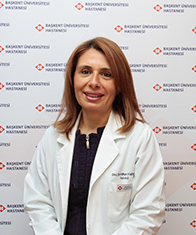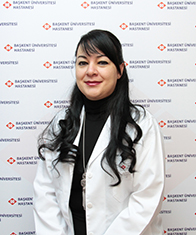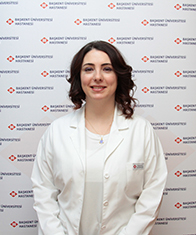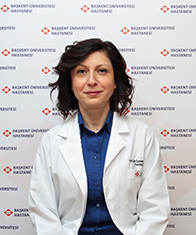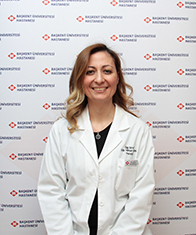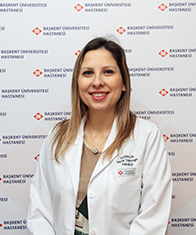Pathologic evaluation is the gold standard for the diagnosis of tumors and many diseases. Tissue samples (biopsies) or fluids (cytologic samples) taken from patients subjected to special procedures, which eventually make them ready for microscopic examination. Microscopic examination is performed by pathologists, who are medical doctors educated on synthesizing microscopic findings with clinical data to conclude a final diagnosis. Pathologic evaluation is mandatory for all materials obtained from a patient by an intervention or surgery. Pathology materials are handled by the technical crew to process them to microscopic slides ready for microscopic interpretation. This pre-analytic step requires approximately 24 to 36 hours. However, our department provides ‘emergent tissue processing’ for cases of medical emergencies (We signout the pathology reports in 2 to 3 hours for patients where treatment should start immediately), such as cases of transplant rejection (Kidney, heart, and liver allograft rejection). Microscopic evaluation is a field of medical expertise on the way to a final diagnosis. Our department signs out more than 30.000 biopsies and 18.000 cytology reports annually.
Each pathologist focuses on a specific section of pathology. This provides better utilization of experience, shorter turn-around times, and more straight communication with the clinical team. It is part of our team of highly experienced pathologists in transplant pathology, nephropathology, and gynecopathology. The shortness of time to sign out pathology reports without sacrificing scientific accuracy is a vital issue for our department, and our department mainly recognized with the most rapid pathology reporting.
Ancillary techniques that aid in diagnosis and prognosis prediction are extensively performed and used in our department. A full immunohistochemical panel makes the most accurate diagnoses possible in all sections. Molecular pathology, which is equipped with new information every day in recent years, is evaluated by pathologists with qualified training in this field. Fluorescent in situ hybridization platform tests for lung cancer (ALK-1 and ROS rearrangements as well as PDL-1 status), breast cancer (Her2), brain tumors (1p/19q codeletion), soft tissue tumors (SS and ESWT translocations) are some of the molecular tests in our department.
